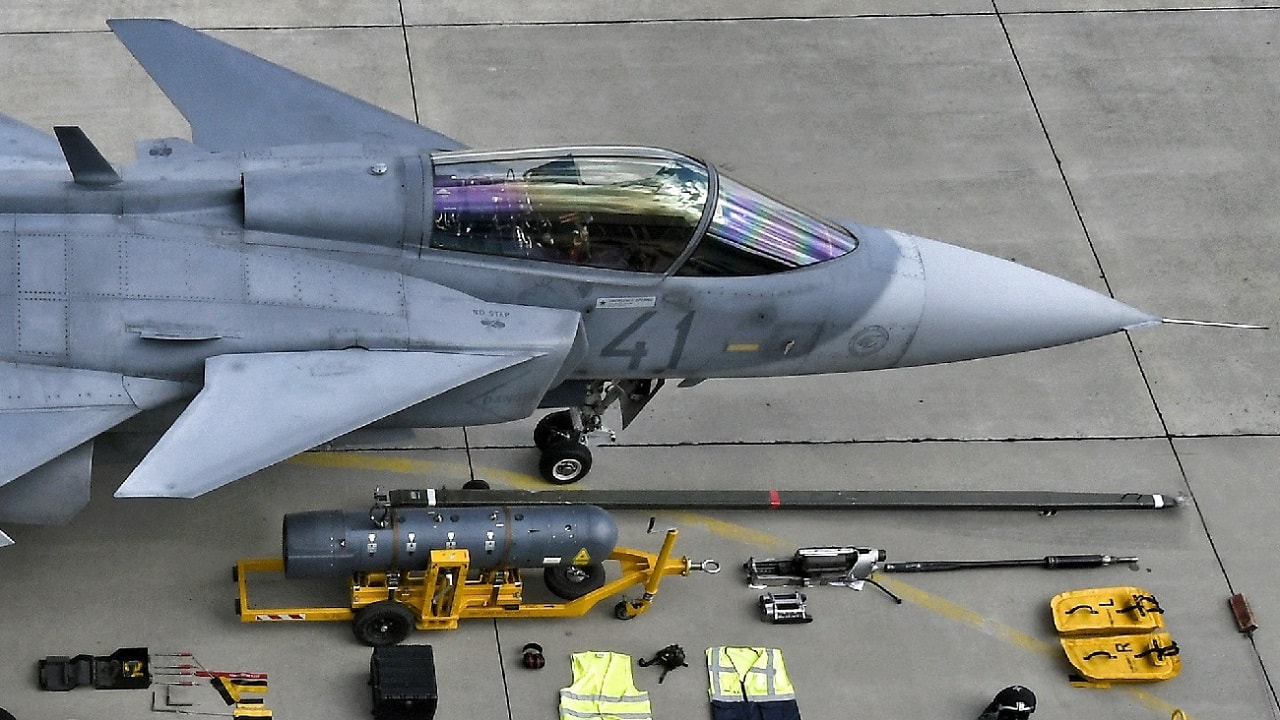Turkish President Recep Tayyip Erdogan is looking ahead to another five-year term. Erdogan won 52.15% of the vote this month in Turkey’s presidential elections, defeating opponent Kemal Kilicdaroglu.
“It is not only us who won, it is Turkey,” Erdogan said in a victory speech at the presidential palace in Ankara. “It is our nation that won with all of its elements. It is our democracy.”
Members of the opposition, as well as outside observers, have questioned whether it was a true win for Turkish democracy. But the immediate concern is what Erdogan’s win means for Turkey’s role in NATO. That includes whether Ankara will approve Sweden’s bid to join the international military alliance.
Washington Deal Coming?
U.S. President Joe Biden discussed the issue during a congratulatory call to Erdogan on Monday.
“He still wants to work on something on the F-16s,” Biden told reporters. “I told him we wanted a deal with Sweden, so let’s get that done. And so, we’ll be back in touch with one another.”
When pressed on whether Biden expected movement from Erdogan on Sweden’s NATO membership, the U.S. leader added, “I raised the issue with him. We’re going to talk more about it next week.”
Last year, Sweden, along with Finland — historically neutral nations — applied for NATO membership following Russia’s unprovoked invasion of Ukraine. However, bids for membership must be approved by all NATO members. Finland joined the U.S.-led alliance last month, but Sweden’s membership has been held up by objections from Turkey and Hungary.
Ankara has maintained that Stockholm harbors members of armed groups it considers to be “terrorists.”
F-16 Deal or No Deal
Turkey has sought to buy $20 billion-worth of F-16 Fighting Falcons from the United States, along with modernization kits for its current fleet of aircraft. The sale has been stalled by objections in the U.S. Congress over Ankara’s refusal to green-light NATO enlargement, as well as its human rights record and its Syria policy.
The Biden administration has supported the sale.
A much smaller $259 million package that included avionics software upgrades for Turkey’s Fighting Falcons was cleared by Congress earlier this year, just days after Turkey ratified Finland’s NATO accession.
The White House has repeatedly rejected any assertion that this was a “quid pro quo.” Yet Turkish Foreign Minister Mevlut Cavusoglu in January said the U.S. side made it clear that approval of NATO bids would be viewed positively by lawmakers.
Moreover, Ankara has been warned that it would be extremely hard to get Congress to approve the F-16 deal should Turkey refuse Sweden’s accession to the alliance. Washington has made Sweden’s membership approval a top priority by this July’s summit of NATO leaders in Lithuania. A deal may be coming, but it could first require some actual deal-making.
Author Experience and Expertise:
A Senior Editor for 19FortyFive, Peter Suciu is a Michigan-based writer. He has contributed to more than four dozen magazines, newspapers, and websites with over 3,200 published pieces over a twenty-year career in journalism. He regularly writes about military hardware, firearms history, cybersecurity, politics, and international affairs. Peter is also a Contributing Writer for Forbes and Clearance Jobs. You can follow him on Twitter: @PeterSuciu.
RELATED: How To Sink A $3 Billion Dollar Submarine: Leave A Hatch Open
RELATED – Ukraine War Ending: Putin Sick with Cancer and Passes Away?

